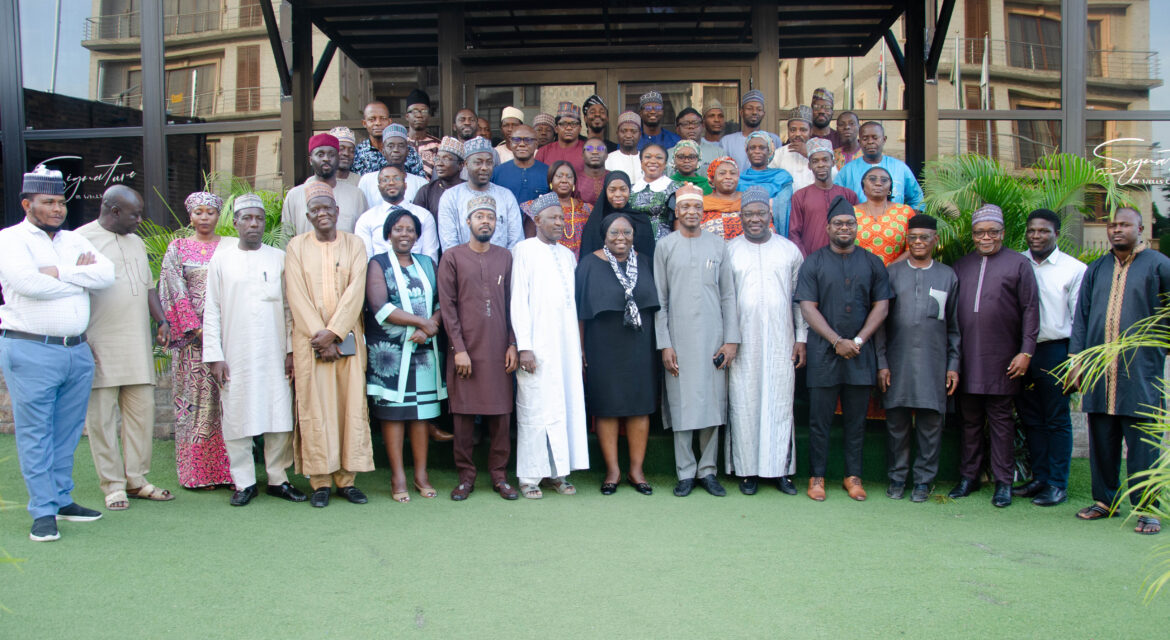The Federal Government, International Fund for Agricultural Development (IFAD) and African Development Bank, AfDB, have resolved to boost food production and transform rural economy with the Special Agro-Industrial Zones, SAPZ, programme.
Speaking at the first joint FGN/IFAD Supervision Wrap-up Event for the SAPZ programme, the National Programme Coordinator, Dr. Kabir Yusuf, announced the successful launch of a pilot project in Kano State.
Kabir re-iterate the broader goals of the programme, which include diversifying Nigeria’s economy through agriculture and attracting investments.
The SAPZ Programme, a key initiative of the Tinubu-led administration’s ‘renewed hope agenda, is set to transform Nigeria’s agricultural landscape, with 7,398 farmers profiled, and 1,000 of the most vulnerable farmers receiving support in the production of rice and tomatoes.
Specifically, 505 farmers in Kura Local Government Area of Kano State focused on rice, while 504 in Bagwai LGA of the state worked on tomato production.
A crucial aspect of the SAPZ initiative is connecting these farmers with offtakers agro-industries that would purchase their produce at competitive prices.
Following extensive negotiations, agreements were signed to ensure that the farmers’ hard work translates into reliable income, addressing one of the significant challenges faced by smallholder farmers.
He said: “With the highest buy-in from the presidency and commitment from various state governments, I am optimistic that by 2025, we will achieve our targets and significantly improve food security in Nigeria.”
Furthermore, the Country Director, IFAD, Dede Ekoue, in her remarks was sure that with the implementation of the pilot phase of the SAPZ Programme in Kano State, there was hope for the future of Nigeria’s agricultural sector.
According to Ekoue, the progress made in the pilot phase of the SAPZ in Kano State was very impressive, as she pointed out that the Accelerated Pilot Intervention, API, in the state indicated that it was a successful model for the SAPZ Programme, which definitely would positively impact on small-holder farmers and boost their productivity.


Adegbile Adams Olawale
I like your message
kmc
Thank you so much.
Hussain Aliyu
We people of Ikara local government,we a waiting for your program in our area
kmc
This is well noted, with thanks
kmc
This is well noted, you may wish to note that, the SAPZ Programme will cover the 36 states but in phases. So be less assured it will come to you.